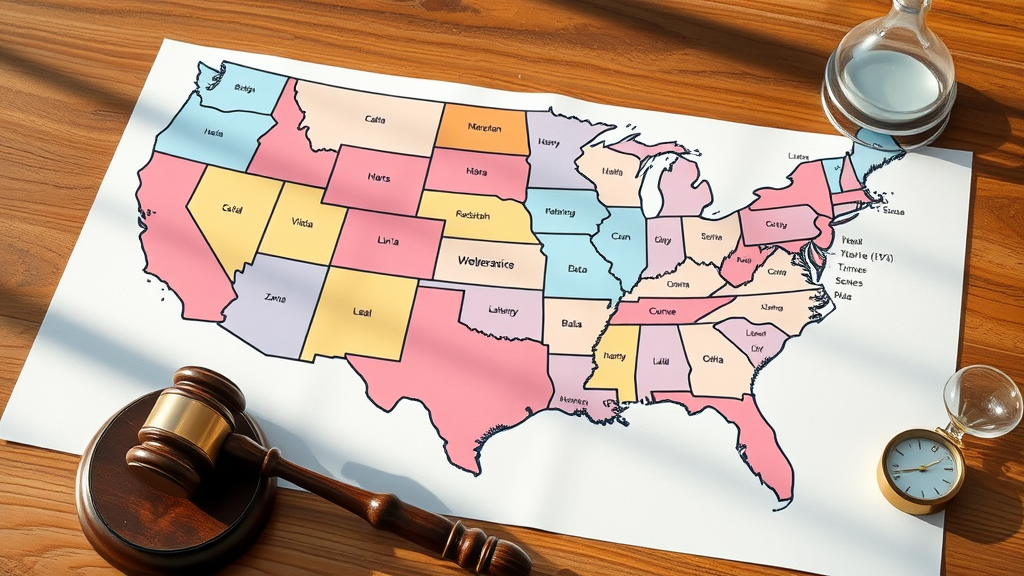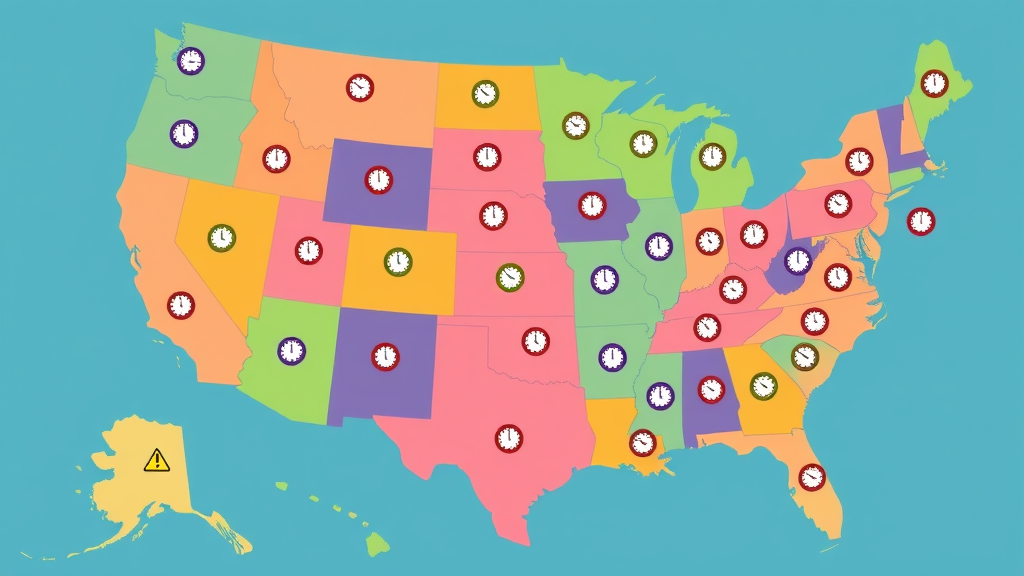Did you know? Nearly 4.4 million people are seriously injured in car accidents yearly in the U.S., highlighting the urgent need for fair car accident injury compensation laws. Each accident leaves behind not only physical pain but also a maze of legal and financial challenges. If you’ve been injured in a car crash, navigating compensation isn’t just about getting help with bills—it's about securing your future well-being.

Startling Facts: The Impact of Car Accident Injury Compensation Laws
The staggering number of people injured in auto accidents each year underlies the vital importance of effective car accident injury compensation laws. These laws aren’t just legal jargon—they provide real protection for those devastated by car accidents. Understanding the structure and function of these laws empowers individuals to rebuild their lives, cope with medical treatment costs, recover lost wages, and address emotional distress. Compensation law varies dramatically between states and insurance companies, making it crucial to have the right knowledge at your fingertips immediately after an accident.
Car accident law serves as the foundation for accident compensation, helping accident victims pursue reparations for a wide range of losses, including property damage, medical expenses, pain and suffering, and punitive damages. Personal injury claims, intricately tied with accident law, require timely action and comprehensive documentation. The effectiveness of these laws, and how well you understand your rights, can determine the outcome of your claim and whether you receive a reasonable settlement offer.
"Nearly 4.4 million people are seriously injured in car accidents yearly in the U.S., highlighting the urgent need for fair car accident injury compensation laws."

Why Understanding Car Accident Injury Compensation Laws Matters
- Knowledge helps victims secure fair accident compensation and recover losses.
- Protects accident victims from being taken advantage of by insurance companies.
- Ensures proper steps are taken for a successful personal injury claim.
- Helps maximize recovery for medical expenses, property damage, and lost wages.
- Supports timely actions in line with the statute of limitations for injury claims.
What You’ll Learn About Car Accident Injury Compensation Laws
- Basics of car accident injury compensation laws
- Types of accident compensation available
- How car accident law applies to personal injury claims
- Steps to maximize your car accident compensation

Understanding Car Accident Injury Compensation Laws
Defining Car Accident Injury Compensation Laws
Car accident injury compensation laws are a set of regulations that govern how victims of auto accidents can obtain monetary compensation for injuries, losses, and damages. These laws establish the process for making an accident claim, define what constitutes eligible damages, and set the legal framework for resolving disputes through personal injury claims or in court. Essentially, they bridge accident law with real-world needs, ensuring that accident victims receive fair compensation after a car crash. Laws vary by state but almost always differentiate between economic damages, such as medical bills and lost wages, and non-economic damages like pain and suffering or emotional distress.
This structured approach means that no matter where an auto accident occurs, there are established guidelines for how accident compensation must be pursued. Accident lawyers use these laws to advocate for victims, ensuring each car accident claim—whether it involves property damage, medical expenses, or punitive damages—is fully explored. When individuals and families understand the basics, they’re better equipped to protect their rights and pursue justice after being affected by an auto accident.
The Role of Car Accident Law in Accident Compensation Cases
Car accident law serves as the backbone of the accident compensation process. It defines the obligations of drivers, insurance companies, and third parties when a car crash occurs. By outlining fault, liability, and processes for resolving disputes, car accident law provides clarity for both victims and attorneys seeking compensation. In cases where an accident claim is disputed or denied, these laws provide the basis for legal action, arbitration, or settlement negotiations. Legal parameters such as comparative negligence, insurance coverage requirements, and statutes of limitations all impact how much compensation a victim can receive and how quickly they must act.
Accident attorneys leverage their knowledge of car accident law to file personal injury claims efficiently and effectively. They ensure documentation—medical bills, police reports, accident scene photographs—meets the standards required by law. This sharply increases the chances that the accident victim will recover the damages owed, making the law a crucial ally for anyone navigating the aftermath of a serious car accident.
How Personal Injury and Accident Law Intersect In Claims
Personal injury law and accident law are closely intertwined, especially in car accident claims. Personal injury law enables accident victims to seek compensation when another party’s negligence causes harm. Accident law provides the framework for proving liability, collecting evidence, and calculating damages. Together, they determine what types of compensation can be recovered, from economic and non-economic damages to punitive awards in extreme cases.
Understanding this intersection is essential when pursuing an accident claim. For example, the success of a personal injury claim often depends on adherence to accident law procedures, like proper notification to insurance companies or filing lawsuits within the statute of limitations. An experienced accident lawyer can seamlessly merge these legal areas, ensuring that compensation claims are complete and presented in a compelling manner that meets legal requirements, whether settling directly with an insurance company or presenting before a judge.

Types of Accident Compensation and Damages
Economic Damages in Car Accident Injury Compensation Laws
Economic damages form the foundation of most car accident injury compensation laws. They cover tangible losses that can be documented and calculated, such as medical expenses, hospital bills, lost wages due to time off work, and the costs of future medical treatment. These damages are straightforward to quantify, meaning you need to keep all receipts, medical records, pay stubs, and repair estimates following a car crash. Insurers and accident attorneys will use this documentation when negotiating an accident claim or injury claim settlement.
Addressing economic damages thoroughly can make a significant difference in the outcome of a car accident compensation claim. Under accident law, even expenses tied to long-term recovery, mobility aids, rehabilitation therapy, or job retraining may be reimbursed. The clearer your records, the stronger your claim—helping you secure the fair compensation you deserve under personal injury law and boosting your ability to recover after an accident.
Non-Economic and Punitive Damages
Non-economic damages provide compensation for intangible losses after a car accident. Common non-economic damages include pain and suffering, emotional distress, and diminished quality of life. While these losses don’t come with receipts or bills, they can far outweigh tangible costs, especially in cases involving permanent injuries or long-term psychological scars. Lawyers and courts emphasize factors like the severity of injuries, the impact on daily life, and the duration of suffering to assess the value of a claim.
Punitive damages, on the other hand, don’t compensate losses—they punish the at-fault party for egregious negligence or intentional misconduct. Such awards are less common but can be substantial, particularly if reckless driving, intoxication, or blatant disregard for safety caused the car crash. Many state accident laws impose strict standards and caps for punitive damages, so working with an experienced accident attorney is essential if your case involves potential punitive awards.
Property Damage and Medical Treatment Compensation
Beyond injuries, car accident injury compensation laws also ensure reimbursement for property damage and medical treatment costs. Claims can include vehicle repair or replacement costs, damage to personal belongings inside the vehicle, and rental car expenses during repairs. For many, the shock of property loss after a car accident is nearly as stressful as physical injuries, especially if transportation is essential to daily life.
Compensation laws require documentation—photos of the accident scene, repair estimates, and appraisals—to support your property damage claim. In addition, bills for emergency care, ongoing medical treatment, and future healthcare needs are central to any injury claim. Coordinating evidence for both types of damages is critical, as insurance companies will require proof before issuing payments. Keeping detailed and organized records ensures that all out-of-pocket expenses get counted toward your car accident compensation.

| Type of Damage | Examples | Proof Required |
|---|---|---|
| Economic Damages | Medical expenses, lost wages, property damage, rehabilitation | Receipts, invoices, pay stubs, repair estimates, medical records |
| Non-Economic Damages | Pain and suffering, emotional distress, loss of enjoyment of life | Personal statements, medical/psychological evaluations, testimony |
| Punitive Damages | Awarded to punish extreme negligence or willful harm | Evidence of gross misconduct, legal argument |
How Car Accident Injury Compensation Laws Work
Making a Car Accident Claim Under State Laws
The process for making a car accident claim is guided mainly by state laws. After a car accident occurs, victims are typically required to report the incident to their insurance company and begin collecting documentation for their accident claim. Depending on the state, you may file under “fault” or “no-fault” rules—which determines whether your own insurance pays first (personal injury protection) or whether you must seek compensation from the at-fault party’s insurer. Understanding this distinction is vital for maximizing your car accident compensation, as deadlines and evidence requirements can differ sharply.
Filing an injury claim starts with gathering evidence—photos, witness statements, police reports, medical bills, and repair estimates—to prove both liability and the amount of your losses. Your accident lawyer can help ensure that your claim meets all legal requirements and is filed within the statute of limitations. For severe injuries, you may also need to show evidence of long-term impacts to claim future damages. Navigating this legal landscape takes patience and attention to detail but is essential for securing a full and fair settlement.

Insurance Company Role in Car Accident Compensation
The insurance company is central to every car accident compensation case. They evaluate claims, request documentation, and are usually responsible for issuing payment up to the limits of your insurance coverage. However, insurers don’t work for the victim—they act in the company’s financial interest, often attempting to minimize payouts. This is why detailed documentation and prompt communication are critical when dealing with an insurance company.
Understanding how insurance companies assess accident claims can prevent costly mistakes. For instance, they may challenge claims for emotional distress or non-economic damages without clear supporting evidence. Additionally, they may pressure accident victims to accept the first settlement offer, which is seldom the maximum amount owed. Having an experienced accident attorney or car accident lawyer on your side can level the playing field and help dispute unfair denials.
Dealing With Insurance Companies During a Car Accident Claim
Communicating with insurance companies after a car accident can be daunting. It’s important to provide accurate information but avoid making statements that could be used against you. Never admit fault or downplay your injuries, and refrain from accepting a quick settlement without thoroughly reviewing the extent of your damages. Keep a record of all communications with the insurance adjuster, and forward any new medical information or repair estimates promptly.
Insurance companies may use delay tactics or request additional documentation to postpone settlement. By staying organized, responding quickly, and consulting with an accident attorney if needed, you can protect your rights and maintain leverage. If negotiations stall or the insurer acts in bad faith, you have the option to escalate your accident claim by filing a formal complaint with your state’s insurance regulator or pursuing litigation as outlined by car accident law.
Common Accident Law Procedures for Compensation
Car accident compensation follows several legal procedures. The process begins with accident reporting, followed by filing claims with insurers and submitting supporting documentation. If initial offers are inadequate or denied, you can engage in negotiations, seek mediation, or pursue a lawsuit. Knowing deadlines, such as the statute of limitations and policy reporting requirements, is critical to avoid losing your right to recover damages.
Most cases are resolved via settlement, but when parties disagree on fault or the value of damages, the matter can proceed to arbitration or trial. Personal injury attorneys skilled in accident law can guide you through each procedural step, working to secure a settlement that covers all reasonable losses—including property damage, medical treatment, and lost income—so you can focus on recovery.
Key Steps After an Auto Accident to Secure Car Accident Compensation
Immediate Actions to Take After Car Accidents
- Seek medical treatment
- Document the scene and property damage
- Notify the insurance company
Right after a car crash, your priority should be ensuring safety and getting medical attention. Even if injuries seem minor, forthcoming problems like whiplash or internal injuries may only appear later. Quick medical documentation creates a crucial link between your injuries and the accident, supporting both your accident claim and personal injury claim. Once safe, use your phone’s camera to take photos of the accident scene, vehicle damage, license plates, road conditions, and injuries. This evidence is invaluable when negotiating accident compensation or challenging a denied claim.
Next, report the accident to your insurance company, providing only the facts—never opinions or guesses about fault. Early notification helps meet policy requirements and the statute of limitations under accident law. Comprehensive documentation and immediate action can substantially increase your chances of securing full car accident compensation, no matter how complex your case becomes.

Filing an Injury Claim with Your Insurance Company
To file a claim for accident compensation, you must inform your insurer promptly—usually within a few days of the accident. Start by submitting details of the incident, supporting documents such as police reports, photos, medical bills, and witness statements. Many insurers offer online portals to track your injury claim’s progress and upload additional evidence, including receipts for medical treatment and property damage repairs. Keep a communication log for every call or message with the insurance company, noting dates, times, and the representative’s name.
The claims adjuster will assess your case and may request more information. Respond quickly and thoroughly, updating the claim file with each new medical or expense-related document. Avoid accepting any settlement offer from the insurance company until you’re confident all injuries and losses are accounted for. Sometimes, initial offers don’t include long-term costs, such as ongoing therapy. Consult an accident attorney or car accident lawyer for help in understanding your insurance coverage and maximizing accident compensation.
Tips for Protecting Your Rights Under Car Accident Injury Compensation Laws
Protecting your right to compensation starts with knowledge and organization. Never sign documents or accept a settlement offer from the insurance company without fully understanding their implications. Document every medical visit, keep receipts, and preserve evidence from the accident scene. If you disagree with the insurer’s assessment, seek a second medical opinion and request a full breakdown of the coverage decision in writing. Hiring an experienced attorney, even for a free consultation, can help you avoid common pitfalls and strengthen your case under car accident injury compensation laws.
Remember, insurance companies prioritize profit—they may downplay offers or deny claims hoping victims won’t challenge their decisions. Resist pressure to settle quickly for less than you deserve. With the right strategy and support, you maximize your compensation and ensure your rights are respected every step of the way.
Working With an Accident Attorney for Personal Injury Cases
Benefits of Hiring an Experienced Attorney for Accident Compensation
Partnering with an experienced attorney is one of the best steps accident victims can take when pursuing compensation. Accident lawyers understand the intricacies of car accident law and accident compensation, enabling them to structure claims, negotiate with insurance companies, and advocate in court for maximum recovery. A skilled accident attorney handles paperwork, meets procedural deadlines, and ensures all types of damages—including pain and suffering, lost wages, and punitive damages—are properly documented and included in your claim.
An attorney’s expertise provides more than just legal strategy—they offer peace of mind during a stressful period. They manage communications with insurance adjusters, counter low settlement offers, and can escalate claims to litigation if needed. In high-stakes cases, such as those involving serious injury or ambiguous liability, having a professional guide increases the likelihood of favorable outcomes.
"An experienced accident lawyer guides you through complex car accident law and ensures maximum accident compensation."

What to Expect From a Free Consultation With an Accident Lawyer
Many accident lawyers offer a free consultation to help you understand your legal options without upfront costs. During this meeting, the attorney will review the circumstances of your car accident, evaluate evidence, and offer an initial assessment of your accident compensation claim. They’ll explain the relevant accident laws, including the statute of limitations that applies to your case, and the viability of pursuing damages through negotiations or litigation. You’ll also receive guidance on how to preserve evidence and avoid mistakes that could undermine your compensation claim.
A free consultation is an opportunity to ask questions about legal fees, timelines, and what to expect throughout the process. Remember, the right attorney will not only explain your rights but also outline a clear plan to pursue the maximum accident compensation possible. Choosing a lawyer with experience in personal injury and car accident claims makes all the difference in the ultimate outcome of your case.

Navigating Settlement Offers and Maximizing Car Accident Compensation
Evaluating a Reasonable Settlement Offer
Determining whether a settlement offer is fair involves a comprehensive accounting of all current and projected losses from your accident. This includes medical expenses, lost income, property damage costs, pain and suffering, and any future medical needs or losses. If a settlement doesn’t cover these areas, pause before accepting. Accident lawyers use their experience to compare the offer to typical payouts for cases with similar circumstances and injuries. Sometimes, insurers try to settle quickly and low, especially before the long-term impacts are fully understood.
Before agreeing to a settlement, factor in expert opinions—medical professionals, repair specialists, and legal experts can all provide valuable input. Ask your car accident lawyer to explain how the settlement stacks up against the potential value of your claim if litigated. The initial number is rarely the best available. Exercise caution and protect your rights by fully reviewing every detail with an experienced attorney.

Negotiating Car Accident Settlements With Insurance Companies
Successfully negotiating car accident settlements with insurance companies involves preparation, persistence, and supporting documentation. Start negotiations by presenting a clear, detailed accident claim, including medical bills, proof of lost wages, repair estimates, and evidence of non-economic damages. Respond to insurance company counteroffers with additional facts—if their offer is low, justify your requested amount with new documentation or expert testimony. Always keep communication professional and factual, and never let pressure rush your decision-making process.
Most importantly, never accept the first settlement offer. Insurance companies often make initial offers that are lower than what your claim is truly worth, hoping you'll accept quickly. Consult with your accident attorney before responding, leveraging their experience in handling similar claims. If negotiations stall or reach an impasse, your lawyer can advise whether to continue discussions, seek mediation, or file a lawsuit for accident compensation.
"Never accept the first settlement offer from insurance companies—consult with an accident attorney before agreeing."
Legal Strategies for Increasing Your Accident Compensation
Strategic legal action can make a major difference in the compensation you receive. Begin by building a comprehensive evidence file—this includes all accident documentation, comprehensive medical reports, and evidence of any emotional distress endured. Keep a diary that records symptoms, treatments, and life changes after the accident; personal accounts can support non-economic and punitive damages claims. Your accident attorney may seek additional expert evaluations or consult accident reconstruction specialists to solidify liability.
Strong negotiation techniques, supported by precedent cases and state-specific accident laws, empower your claim. Your lawyer may use demand letters, staged negotiation tactics, or mediation to extract the best settlement. If necessary, escalate your injury claim to court to demonstrate readiness for trial, which can motivate insurers to offer higher amounts. The goal is always the same: securing complete compensation that reflects the true impact of your accident under car accident law.
Understanding Your Rights: Statute of Limitations Under Car Accident Injury Compensation Laws
State-by-State Overview of Statute of Limitations
The statute of limitations is the deadline for filing an accident claim or personal injury lawsuit after a car crash. Time limits vary widely across the country: Many states require accident victims to file within two to three years, but some deadlines are as short as one year or as long as six. If you miss this window, you may lose the right to pursue any accident compensation, regardless of the strength of your case. Familiarizing yourself with your state’s rules is crucial to protect your rights under car accident injury compensation laws.
Each state sets its own clock. For example, California generally allows two years to file a personal injury claim from the accident date, while New York provides three. Property damage claims may allow a bit more time. Special rules often apply if the at-fault party is a government agency. Consult a local accident lawyer right away after your auto accident to ensure deadlines are met and your rights preserved.

Consequences of Missing the Deadline for Injury Claims
Failing to file your injury claim within the statute of limitations has severe consequences: Your case will likely be dismissed, and you’ll be unable to recover car accident compensation for medical expenses, lost wages, or pain and suffering. Courts enforce these legal deadlines strictly to keep the claims process fair and manageable. There are rare exceptions—such as when an injury is discovered later or if the victim is a minor—but it’s not wise to count on these exceptions.
Letting time pass weakens your case even if the statute hasn’t expired, as evidence fades and witnesses become harder to contact. Secure your claim by acting quickly, consulting an experienced accident attorney, and keeping track of all critical dates related to your auto accident and recovery.
| State | Personal Injury | Property Damage |
|---|---|---|
| California | 2 years | 3 years |
| New York | 3 years | 3 years |
| Texas | 2 years | 2 years |
| Florida | 4 years | 4 years |
| Illinois | 2 years | 5 years |
Watch our concise explainer video—using engaging animations and clear narration—to quickly learn key steps for making an accident claim, common pitfalls, and how car accident compensation works under the law.
Avoid errors that insurance companies use against you. Our quick video reveals the most frequent pitfalls—missed deadlines, incomplete documentation, or accepting the first settlement—and what to do instead.
People Also Ask About Car Accident Injury Compensation Laws
How much are most car accident settlements?
Answer: Average car accident settlements typically range from $3,000 to $75,000, depending on injury severity, property damage, and the specifics of car accident injury compensation laws.
How much compensation will I get from a car accident?
Answer: Car accident compensation depends on economic damages, non-economic damages, and any punitive damages applied according to car accident law and insurance coverage.
How much money should you get if you get hit by a car?
Answer: The amount varies, but compensation typically includes medical costs, lost wages, pain and suffering, and property damage as regulated by car accident injury compensation laws.
What is a reasonable settlement offer?
Answer: A reasonable settlement offer takes into account the full costs of medical treatment, property damage, lost income, and other expenses outlined in your accident claim.
FAQs About Car Accident Injury Compensation Laws
- What evidence helps with a car accident compensation claim? Thorough evidence such as police reports, photos of the scene, medical bills, repair estimates, and witness statements all improve your accident claim.
- How long does a car accident settlement take? Settlements often finalize in 2–6 months, but can take longer if there are disputes over liability, severity of injuries, or delays with the insurance company.
- Do you need an accident lawyer to file an injury claim? While not legally required, an experienced accident attorney can significantly increase your chances of a successful compensation claim and a higher settlement.
- Can you claim for pain and suffering in car accident cases? Yes. Most car accident injury compensation laws allow for claims covering non-economic damages like pain and suffering, but the calculation and proof can be complex.
Key Takeaways: Mastering Car Accident Injury Compensation Laws
- Knowing car accident injury compensation laws empowers accident victims
- Get medical help and legal support promptly
- Document everything for your accident claim
- Don’t accept early settlement offers without legal advice
Learn more: visit pugetsoundinjurylaw.com/
Conclusion: Ensuring Fair Car Accident Compensation Under the Law
Understanding car accident injury compensation laws is key to protecting your rights and securing a fair recovery—act quickly, document thoroughly, and seek expert legal guidance after every car crash.
Understanding car accident injury compensation laws is crucial for protecting your rights and securing fair compensation after an accident. These laws vary by state, affecting how claims are processed and what compensation you may be entitled to.
State-Specific Insurance Requirements and Compensation Laws
-
California: Drivers must carry minimum liability insurance of $15,000 for injury/death to one person, $30,000 for injury/death to multiple people, and $5,000 for property damage. California follows a pure comparative negligence rule, allowing victims to recover damages even if they are partially at fault, though their compensation is reduced by their percentage of fault. (bloominjurylaw.com)
-
Georgia: The state requires minimum liability coverage of $25,000 for bodily injury per person, $50,000 per accident, and $25,000 for property damage. Georgia operates under a modified comparative negligence system, barring recovery if the victim is 50% or more at fault. (770goodlaw.com)
-
Texas: Texas mandates minimum liability insurance of $30,000 for bodily injury per person, $60,000 per accident, and $25,000 for property damage. The state follows a modified comparative fault rule, allowing recovery if the victim is less than 51% at fault, with compensation reduced by their fault percentage. (stxlegalgroup.com)
-
Florida: As a no-fault state, Florida requires drivers to carry Personal Injury Protection (PIP) coverage, which pays for medical expenses and lost income regardless of fault, up to the policy limit. This system limits the ability to sue for additional damages unless serious injury thresholds are met. (fuscolaw.org)
Key Considerations Across States
-
Statute of Limitations: Time limits for filing claims vary by state. For example, California allows two years for personal injury claims and three years for property damage claims. Missing these deadlines can bar you from seeking compensation. (bloominjurylaw.com)
-
Uninsured/Underinsured Motorist Coverage: Some states require this coverage to protect against drivers lacking sufficient insurance. For instance, Connecticut mandates uninsured/underinsured motorist coverage of $25,000 per person and $50,000 per accident. (lawyers.law.com)
-
Comparative Negligence: Many states use comparative negligence rules to determine compensation based on each party’s fault percentage. In Texas, you can recover damages if you’re less than 51% at fault, with compensation reduced accordingly. (stxlegalgroup.com)
Conclusion
Navigating car accident injury compensation laws requires understanding your state’s specific regulations. Consulting with a knowledgeable attorney can help ensure you take the appropriate steps to secure the compensation you deserve.
 Add Row
Add Row  Add
Add 




Write A Comment